How does under-extraction and over-extraction affect coffee flavor? Hand brewed coffee grind powder water ratio
Professional coffee knowledge exchange more coffee bean information please follow the coffee workshop (Wechat official account cafe_style)
For more boutique coffee beans, please add private Qianjie coffee on Wechat. WeChat account: qjcoffeex
Extraction means to squeeze something out or to obtain an extract. In chemistry, extraction refers to the extraction of valuable substances (flavor) from the raw material (coffee beans). In coffee extraction, it is most common to use hot water to extract flavor from coffee powder.
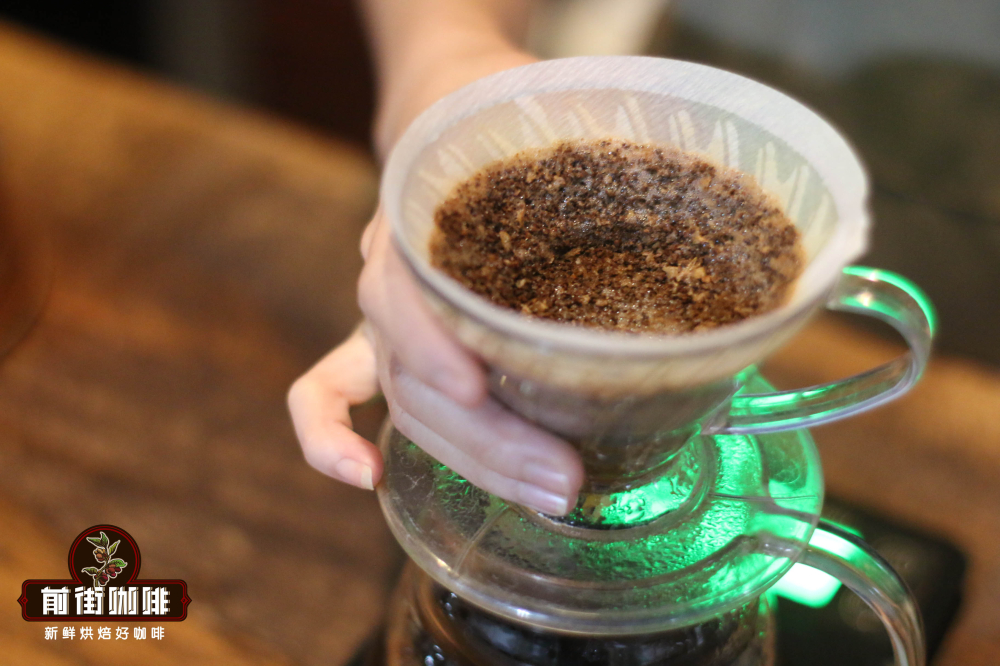
In a coffee bean, 70% are wood fibers and 30% are flavor substances. Of the flavor substances, 20% are positive, pleasant sweet and sour substances, and 10% are negative, unpleasant bitter substances.
Therefore, the extraction of coffee is not to extract 30% of the substance, but to extract up to 30% of the substance in coffee. If you want a good cup of coffee, you only need to extract 18-22% of it.
What is overextraction?
Over-extraction means that the coffee powder has been in contact with hot water for too long, in which too many negative substances are released, and the bitter taste masks the sweet and sour taste. There are two possibilities of over-extraction, one is that the grinding is too fine, and the other is that the water temperature is too high.
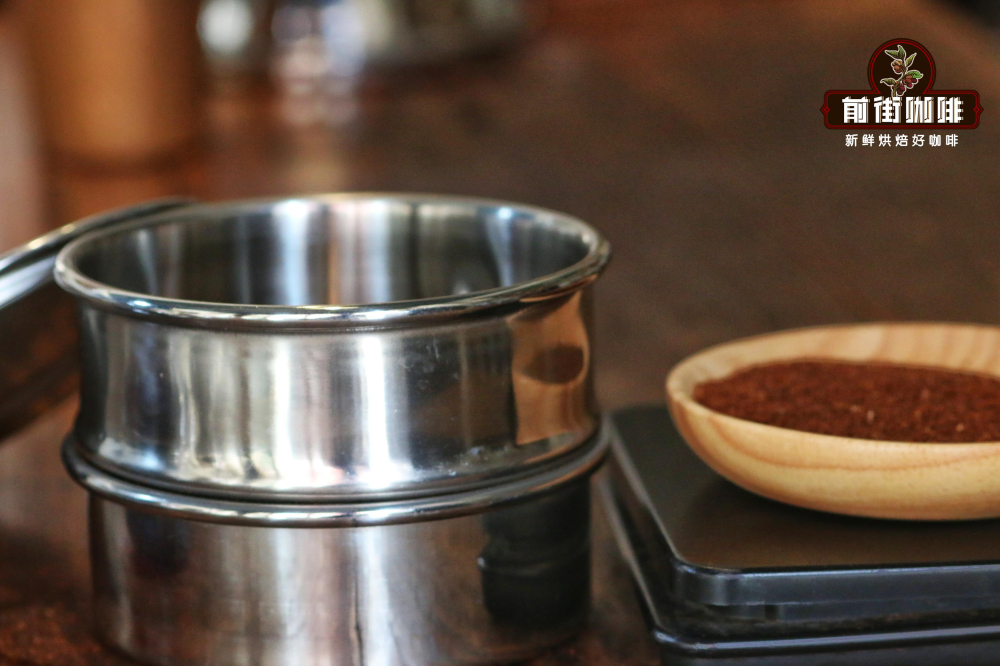
The structure of coffee beans with different roasting degrees will become looser with the increase of baking time, so that the speed of the substance becomes faster. Therefore, different roasted coffee beans need to be brewed with different grindness and water temperature.
According to the experience of roasting and brewing of Qianjie coffee, the structure of medium-to-medium roasted coffee beans is relatively tight, so it is necessary to use fine grinding and high water temperature for brewing. It is recommended that you use medium fine grinding / fine granulated sugar size (China No. 20 standard screen screening rate 75-80%), and then match the water temperature of 90-91 degrees Celsius for extraction.
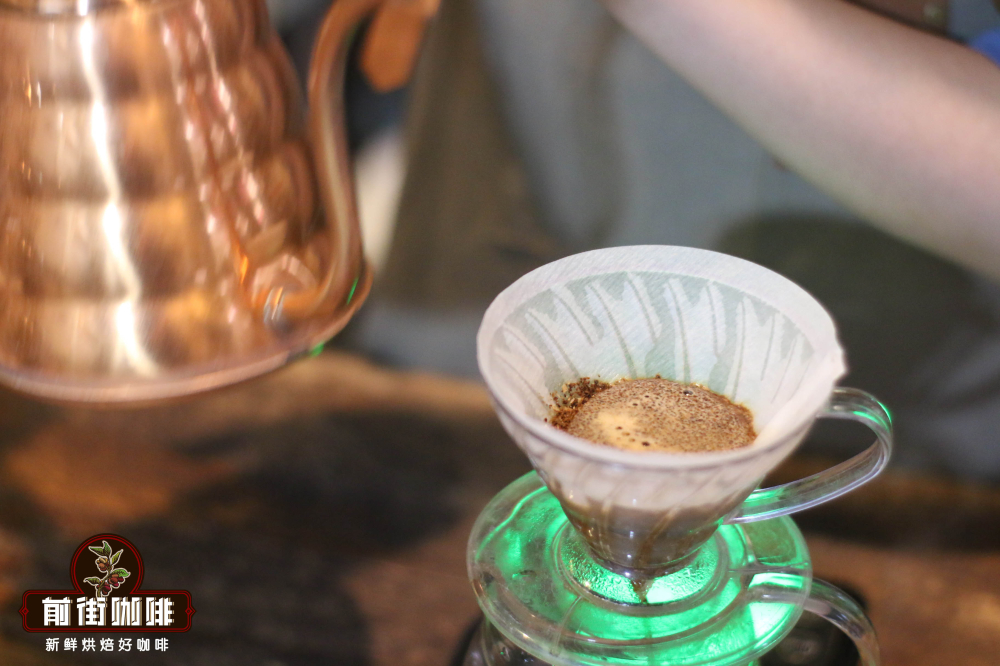
The structure of medium-deep-deep roasted coffee beans is relatively loose, so it needs to be extracted with rough grinding and hot water at a lower temperature. Here, it is recommended that you use the size of coarse grinding / coarse sugar (the screening rate of China No. 20 standard sieve is 65-70%), and then extract with a water temperature of 88-89 degrees Celsius.
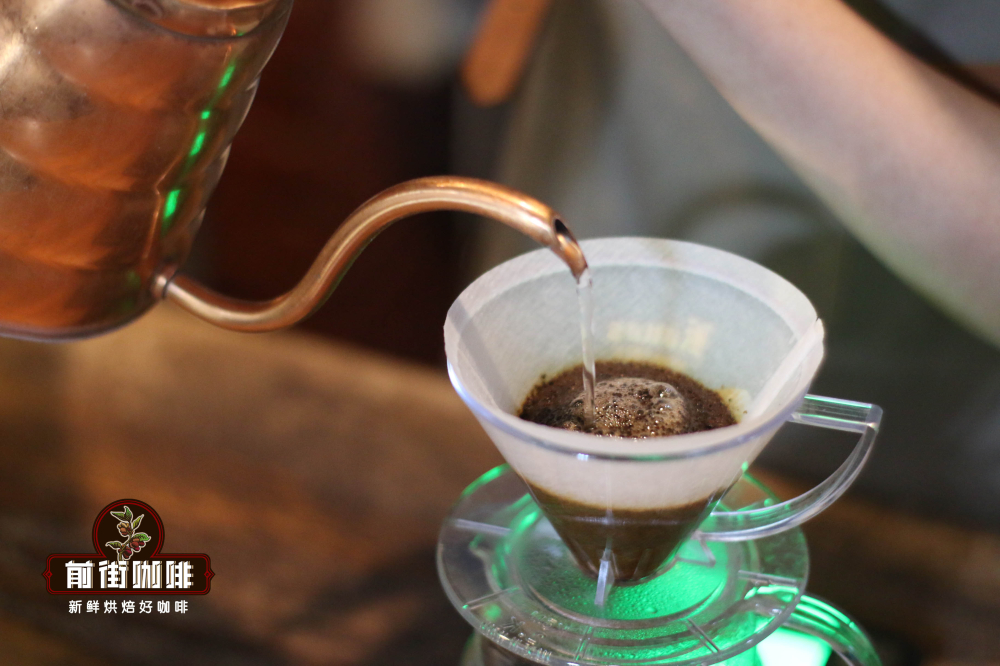
There is also a case of coffee over-extraction (if the grinding degree and water temperature are reasonable), that is, the injected water is too small, increasing the time for the water to pass through the powder layer, and it is easy to cause the coffee to be overextracted.
What is insufficient extraction?
Inadequate extraction means that the coffee powder is in contact with hot water for too short a time to extract all the flavors from the coffee powder, which makes the coffee taste thin, bitter and uneven. The possibility of insufficient extraction and the idea of over-extraction: the grinding is too coarse / the water temperature is too low.
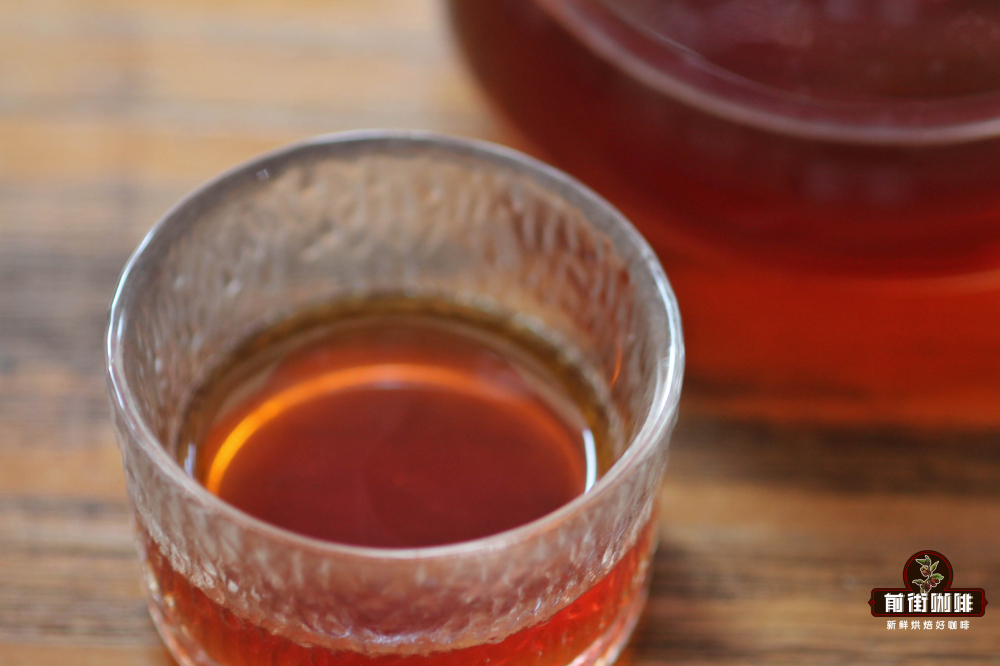
If the grinding degree and water temperature are reasonable, the coffee still drinks thin and feels like water, then it is because the flow of water injection is too large, and the water in the filter cup exceeds the coffee powder, causing the coffee to flow out from the cup wall around the filter cup and dilute the extracted coffee.
Important Notice :
前街咖啡 FrontStreet Coffee has moved to new addredd:
FrontStreet Coffee Address: 315,Donghua East Road,GuangZhou
Tel:020 38364473
- Prev

What are the five common misunderstandings of milking? Is it right to scoop off the coarse foam with a spoon?
The five major misunderstandings of milk foam for milk foam, there are several misunderstandings that we need to understand, so that we can better understand milk foam. The first misunderstanding: the use of shaking up and down to pull the vat to remove the rough foam on the surface. This is a very good method, but many friends have a strong dependence on this method, their own milk foam is not good, do not sum up why they did not play well, but use this kind of
- Next
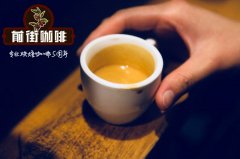
The common method of brewing and extraction of coffee? Is leaching an ideal household method for brewing coffee?
How to extract coffee: the easiest way to brew coffee is to put the coffee powder in the cup and add hot water. As it cools, the coffee powder will sink to the bottom of the cup. This is an old method, and it is still used in some parts of Indonesia. Be careful not to eat the coffee at the bottom of the cup. The advantage of this method is that it is simple and the water temperature is just right. Pressurized espresso is made from 80 to 96 degrees Celsius.
Related
- What is the meaning of lactic acid fermentation with coffee bean treatment?
- How to judge the state of foam by sound?
- How does the latte pull out the unicorn pattern? Come to get for a little trick to improve the flower pull!
- Will flower pulling affect the taste of the latte?
- Do you know the history of coffee?
- The difference between honey treatment and sun washing what is raisin honey treatment?
- What kind of milk can a novice use to make coffee foam to keep the foam longer? The correct method and skills of milking tutorial sharing
- Why do washed coffee beans taste sour? Flavor characteristics of washed Coffee
- Introduction to the skill of how to practice the size and height of water injection around the circle of hand-brewed coffee
- How do beginners practice coffee flower drawing from scratch?

